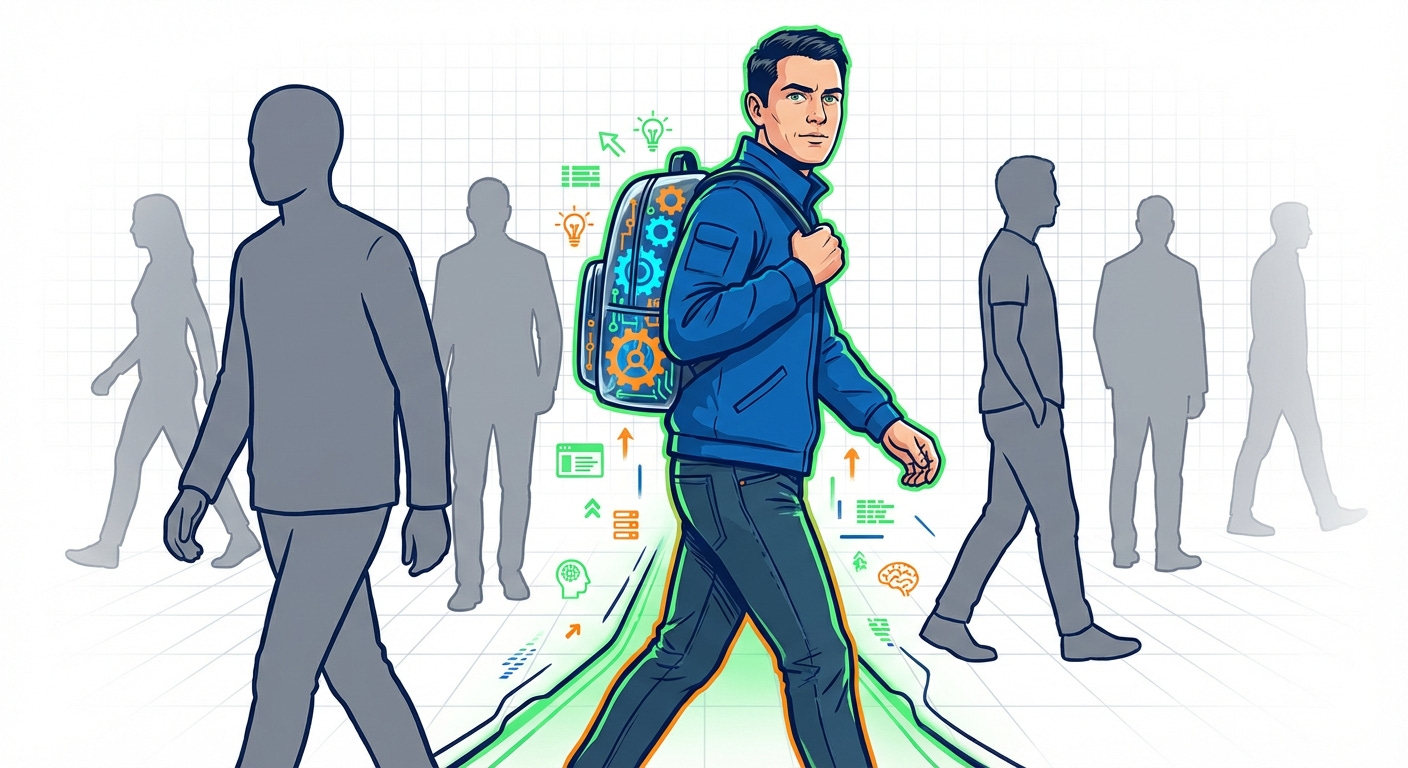How to Avoid Sleepwalking into Irrelevance in the Age of AI
Let’s be real: most people in tech are still too chill about AI. They’re thinking, “I’m doing good work. I’ve got experience. I’ll be fine.”. While it might sound comforting, I’m sorry to tell you it’s not enough.
The landscape is shifting, quietly, steadily, and faster than most realize. According to the World Economic Forum, 23% of all jobs are expected to change by 2027, with 83 million roles disappearing and 69 million new ones emerging.
Even core roles, such as software engineering, are being redefined. Anthropic’s CEO recently predicted that AI will be writing 90% of code within six months, and nearly all software development could be automated within a year. That might sound extreme, but the direction is clear: the value of “just writing code” is dropping fast.
Meanwhile, Tech companies are already raising expectations: more output, fewer people, faster delivery. If you keep doing what’s always worked, you may start to feel like you're falling behind. Not because you’re any less capable, but because the environment around you has changed.
Plenty of people think adapting to AI just means writing better prompts or playing with new tools. But those are surface-level skills. The real shift is deeper.
It’s about how you see your role, how you define value and impact, and how willing you are to reinvent yourself again and again.
“Change is the only constant in life” - Heraclitus
With AI, the pace of change has gone exponential.
If you don’t shift how you think, no amount of skill will keep you relevant.
Disclaimer: I’m figuring this out too. I don’t have all the answers, this is just my way of thinking out loud with you.
In this article, we discuss:
The hidden habits that will quietly make you obsolete
🔒 The mindset shifts that will actually make you future-ready (exclusive for paid subscribers)
🔒 How to move from anxiety to action, with clear next steps (exclusive for paid subscribers)
If you want to stay relevant, grow faster, and lead in the AI age, this is for you.
What used to be enough isn’t enough anymore
You’ve probably built your career by doing good work, meeting expectations, and being dependable. These are still good things, and also table stakes.
Let’s call out the mindsets that once felt safe, but no longer are:
Being a great executor
Doing what you’re told, even brilliantly, isn’t enough anymore. If the work can be automated, delegated, or deprioritized, it probably will be.
What matters now is whether the problems you’re solving are still worth solving—and whether your role in solving them is defensible. The safest thing you can do is stop assuming you’re safe.
Banking on your seniority or job title
Seniority used to be a moat. Now it can be a trap. Your title won’t protect you if your role gets redefined or replaced. The more senior you are, the more expensive you are, and the more pressure there is to prove your worth.
Ten years of experience isn’t the same as one year repeated ten times. What matters is how fast you can evolve. What keeps you in the game is relevance, not your level.
Waiting for a roadmap
Believing someone will tell you exactly what to do is a mistake. This isn’t a paved road. It’s a world we haven’t lived in before. Nobody’s handing you a map. You have to draw your own.
If you’re still in “wait-and-see”, then what are you waiting for?
Hoping things will “get back to normal”
We’re not heading back to normal. This is the new normal, and the pace of change is only accelerating from here.



